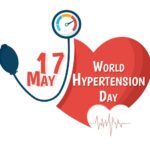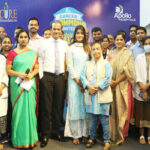healthysoch
New Delhi, July 20, 2019 :
Pediatrics and Geriatrics are two specialisations which were started to cater to two sub groups of the population which required doctors to be trained separately to deal with them. It is not to say that an MBBS or MD Medicine cannot treat a child or a 80 year old man. However those who train in these specialties can provide the extra edge to the medical care given to these subgroups focusing on their special needs. These specialisations have entrenched themselves in medical education system and proved their utility across the globe. In India we however also have one more special group which require careful handling; The V.I.P.s. Not treated with special care and caution this group can lead to lot of stress for the treating physicians and create havoc for the healthcare establishment. Unfortunately we are not taught in our curriculum the special “care and caution” needed to deal with this subgroup.
Who are these VIPs ? The term encompasses a large number of pompous individuals with a exaggerated sense of self importance and they may be found among politicians, judiciary, police personnel, advocates, journalists, trade unionists, and even doctors specially those on whose referrals the super-specialists survive. It is not to say that all the professions mentioned are uniformly VIPish. I for one have number of politicians who despite today being a member parliament or a MLA wait patiently in reception area after paying the consultation fee without creating a fuss. The grace with which they conduct themselves and the respect I have received from many who would otherwise be classified as VIPs also sometimes amazes me. However there are those who want to be treated by a specialist in VIPATRICS.
To treat them you require to be well endowed both metaphorically and figuratively. Most of us lesser mortals simply refer such VIPs to our competitors or to the PGI. But unfortunately my competition has also caught on and a reverse referral of such individuals can now be seen in my own OPD. To treat them you should be well financed because expecting them to pay for services would be a an oxymoronic idea. You also need to be prepared to receive multiple oddly timed phone calls and whatsapp messages including pictures of their stools to assess and treat them telephonically. Existence of other patients is a nuisance and an irritant for them and waiting for their turn is something outlandish. An unwary untrained unsuspecting medical professional could easily end his career at its very beginning. Even though you may not have charged them they remain your consumers in Indian Law, so you should be prepared to shell out astronomical compensations, God forbid if something goes wrong.
A specialized branch of medicine urgently needs to be introduced by MCI / NMC which teaches doctors how to deal with VIPs. I am sure the next NEET PG Counselling will see these seats in various medical colleges question only is how attracted will graduates be to these seats.
Author :
Dr Neeraj Nagpal
Convenor,Medicos Legal Action Group, Managing Director MLAG Indemnity,
Ex President IMA Chandigarh







